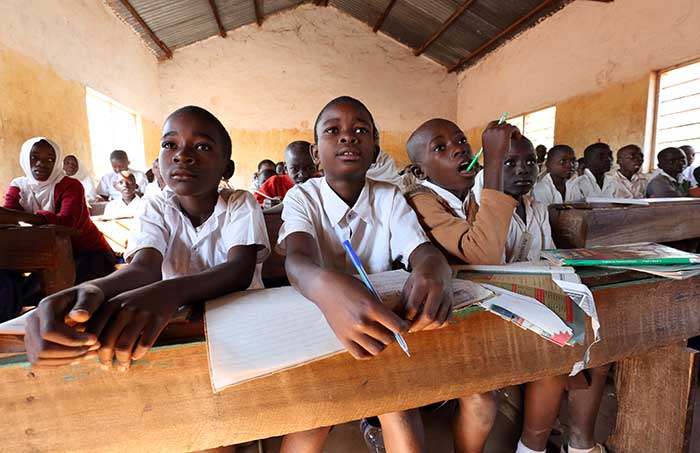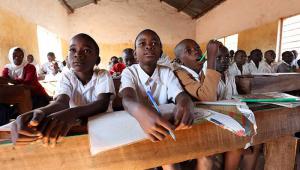web_schoolafrica_shutterstock_315777626.jpg

Children in school
Bridge International Academies, which plans to sell basic education services to 10 million students in low-income countries in Africa and Asia by 2025, has come under heavy fire for its methods – but also enjoys the support of some prominent backers.
Today’s decision confirms an order from Uganda’s education ministry, which directed all Bridge International schools in the country to close in August due to licensing and safety issues.
At the time, Janet Museveni, Uganda’s minister of education and sports, said the schools “could not promote teacher-pupil interaction” and that poor hygiene standards were putting the “life and safety” of children in danger.
Godwin Matsiko, the liaison officer for Bridge International Academies in Uganda, said the school disagreed with the ruling, which will affect 12,000 children.
“We plan to appeal on behalf of the more than 20,000 Ugandans who have decided to send their children to our schools. They do this because they want an affordable, quality education. They want the best for their children, and this ruling throws that into doubt,” he said.
“The ruling threatens to undo the critical work Bridge has done to broaden education opportunities that provide many thousands of Ugandan children with the best chance they have to escape generational poverty and achieve success.”
The school argues it offers a key service to families whose children would otherwise have few good opportunities to learn.
Some Bridge schools are in rural areas where there are no other providers. In areas where there are state-run schools, Bridge International points to issues such as a high rate of teacher absenteeism or lack of teaching materials, which it says deprive many more Ugandan children of a high-quality education.
The school company’s influential backers include the World Bank, the UK’s Department for International Development and the Bill and Melinda Gates Foundation, which have donated millions of dollars to Bridge International to increase access to basic schooling in the countries where it works.
However, critics – which include teachers’ unions in Uganda and the UK, the United Nations special rapporteur for education and a catalogue of African civil society organisations – have slammed the school’s modus operandi.
The most controversial aspects of Bridge International’s methods include a teaching model based on unqualified teachers delivering scripted lessons from tablets and the costs charged to parents, which some argue are too high for many low-income families.
Speaking to UK MPs on the country’s international development select committee earlier this week, Alice Albright, CEO of the Global Partnership for Education, said it was “hard not to be impressed” when you visited Bridge International schools and saw how they worked.
However, she stressed that the issue was “tricky”, warning that private, fee-charging schools could exclude poorer children and create an environment where governments felt absolved of their duty to provide universal, free education.
“At the end of the day, we would have some philosophical as well as equity-based concerns if we saw low-cost private schools really displacing the responsibility of governments,” she stated.
Another court case between Bridge International and a Kenyan county education board is due to be heard today.












